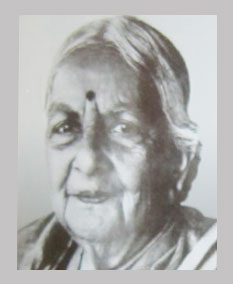The Crafts Council of India (CCI) was founded in 1964 by Kamaladevi Chattopadhyay as one of her pioneering efforts toward protecting and enhancing India’s heritage in the nation’s transition to modernity. Inspired by the commitment of Mahatma Gandhi and Rabindranath Tagore to hand production as a catalyst for political and social emancipation, as well as her experience with national efforts at craft regeneration since Independence, Kamaladevi Chattopadhyay felt the need for mobilizing public awareness and action. For this, she brought together a band of volunteers in CCI to help build a lasting awareness of the knowledge and skills of India’s artisans, and to help address their needs within a rapidly changing environment. It is with the purpose of protecting this identity, that the CCI was established. The CCI is a registered not for profit Society head-quartered in Chennai, Tamilnadu.
Regional and local efforts were encouraged, particularly through the founding of Crafts Councils in different States.
Today CCI works together with a network of 9 State councils.
CCI is engaged in partnerships with the Government of India and other activists to ensure a national awareness of the economic, social, cultural and environmental importance of artisans and their crafts.
The Vision
The Crafts Council of India strives towards an India in which its artisan communities are valued, respected and supported with an enabling environment that renews and enhances their heritage for contemporary relevance and self-worth.
The Mission
- To help ensure sustainable livelihoods through crafts.
- To help ensure growth for artisans and their families through opportunities for education and training.
- To help bring technology, design, marketing and entrepreneurial skills for self-reliance within changing markets at home and abroad.
- To promote research and documentation that can help conserve tradition and provide resources for future development.
- To advocate the critical importance of artisans and their crafts to the nation’s social, economic, cultural and environmental well-being.


